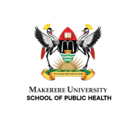This is a 2 year programme offered in the School of Public Health (SPH), College of Health Sciences (CHS).
Admission Requirements
- A bachelor degree in applied health sciences e.g. environmental health, medicine (human and veterinary), Pharmacy and Nursing from a recognised institution with at least one year of working in a health service related organization.
- A bachelor degree in social sciences such as social work, sociology, economics, statistics, developmental studies, demography& population studies from a recognised institution. Experience working on M&E related assignments will be an added advantage.
- A bachelor degree in management sciences, such as Business Administration, information technology from a recognised institution. Experience working on M&E related assignments will be an added advantage.
- For classified degrees, applicants must possess a minimum of honours degree or its equivalent.
- Shortlisted applicants will be subjected to an entry interview for admission into the programme.









